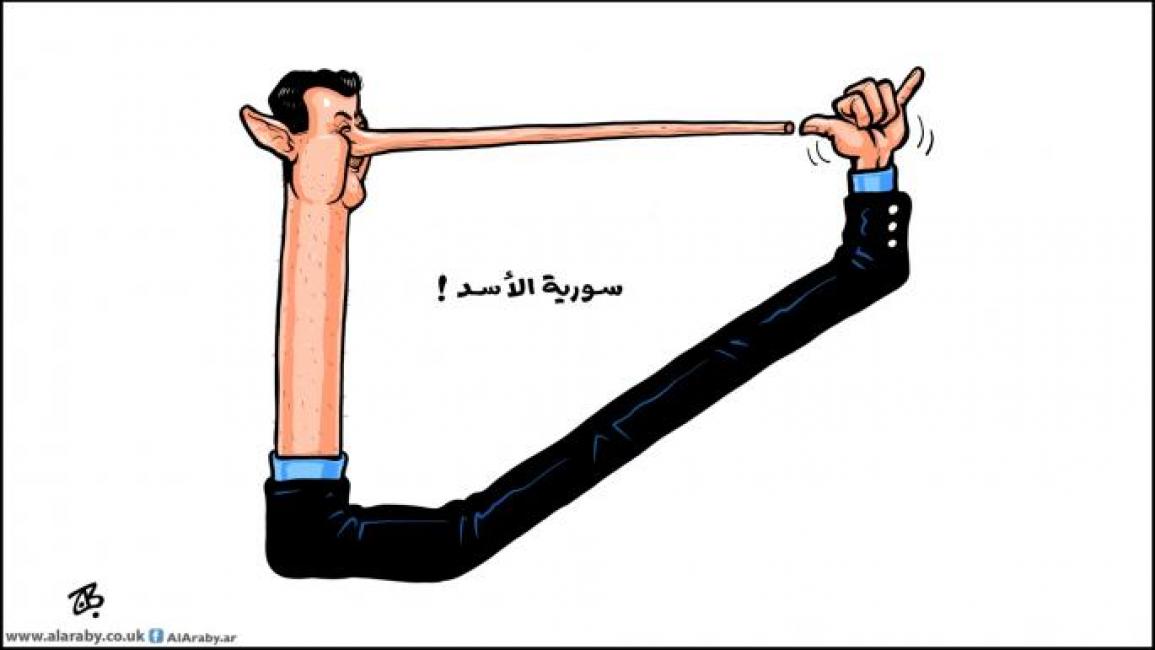Amidst the absence of an international consensus on a political resolution to the Syrian crisis in the foreseeable future, Bashar al-Assad’s regime maneuvers within existing global, Arab, regional, and internal constraints to ensure its survival and bide its time, waiting for potential shifts in the balance of power. The dynamics between key players in the Syrian crisis—Russia and America—are strained to the maximum due to Russia’s war with Ukraine and the repercussions of Israel’s actions in Gaza, diverting the attention of major powers towards rearranging their priorities, where resolving the Syrian crisis does not appear urgent.
The U.S. sanctions, particularly under the Caesar Act, underscore Washington’s continued refusal to rehabilitate the Assad regime. Despite controlling a portion of Syrian territory east of the Euphrates, Assad lacks the leverage to fundamentally alter the regime’s structure or disrupt Russian initiatives aiming for a solution in collaboration with Ankara and Tehran, without American involvement.
No Messages from Riyad and Abu Dhabi… Assad’s Lonely Eid el-Adha
Since returning to the Arab League at the Jeddah summit in May 2023, the regime has failed to fulfill commitments from meetings in Amman and Cairo regarding Security Council Resolution 2254. This includes initiatives such as allowing Syrians to determine their country’s future, organizing United Nations-backed elections, and halting attacks on civilians, as well as addressing issues like drug trafficking and facilitating refugee returns. Saudi Arabia recently restored diplomatic ties, appointing an ambassador to Damascus five months after Syria did the same.
At the recent Manama summit, Assad’s limited role and requests from Arab counterparts signalled dissatisfaction with his conduct. Saudi Crown Prince Mohammed bin Salman, now seen as a pivotal figure in Gulf and Arab leadership, seeks to align with Washington and potentially normalize relations with Israel, resolving wars like that in Gaza and countering Iranian influence and its demographic impact—a key concern for the Kingdom. Meanwhile, U.S. legislation opposing normalization with Assad’s regime awaits passage after House approval.
In recent months, Assad has purportedly taken steps toward reform, including combating corruption, dismissing party leaders, adjusting security personnel, reducing party memberships, and endorsing new figures for upcoming People’s Assembly elections in July. These moves, aimed at enhancing his legitimacy, appear ineffective to many amidst ongoing corruption and worsening economic conditions.
Assad also attempts to distance himself from Iranian influence, imposing restrictions on Iranians and Iraqis and showing tacit support for Bahrain’s summit stance asserting UAE sovereignty over disputed islands. Such actions align with Arab initiatives, yet suspicions of intelligence ties with Tel Aviv during Israeli actions in Damascus and renewed coordination with Iran have strained relations. Supreme Leader Ali Khamenei’s emphasis on Syria’s identity of resistance during recent meetings underscores Iran’s discontent and its efforts to bolster influence through military and intelligence channels in Syria.
This return to Iranian influence has prompted Arab demands, including at the Gulf Cooperation Council meeting in Doha, for Assad to honour commitments from previous regional meetings. Concurrently, Iraq seeks to mediate between Damascus and Ankara, potentially satisfying Tehran, with potential talks in Baghdad. While Damascus aims to limit Iranian encroachment on its decision-making, the regime’s actions fall short amid strong Iranian objections and their military presence, highlighting Assad’s inability to reciprocate recent Arab overtures effectively.
This article was translated and edited by The Syrian Observer. The Syrian Observer has not verified the content of this story. Responsibility for the information and views set out in this article lies entirely with the author.


